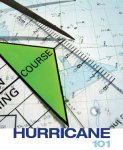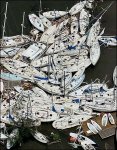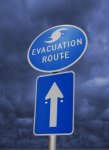toneeees
Administrator
- Joined
- Mar 15, 2011
- Messages
- 3,024
[FONT=Trebuchet MS, Lucida Grande, Arial, sans-serif] It doesn't take a rocket scientist to understand that drinking and driving don't mix. The fact of the matter is people still seem to avoid following suit when it comes to operating a vessel. Recent statistics state that 17% of all recreational boating fatalities involve the abuse of alcohol; meaning 428 of 2010's 6,062 accidents were alcohol related. On the road there are laws and organizations that discourage drinking and driving, but when it comes to the water, we really see very little enforcement. Until now.[/FONT]
It doesn't take a rocket scientist to understand that drinking and driving don't mix. The fact of the matter is people still seem to avoid following suit when it comes to operating a vessel. Recent statistics state that 17% of all recreational boating fatalities involve the abuse of alcohol; meaning 428 of 2010's 6,062 accidents were alcohol related. On the road there are laws and organizations that discourage drinking and driving, but when it comes to the water, we really see very little enforcement. Until now.[/FONT]
[FONT=Trebuchet MS, Lucida Grande, Arial, sans-serif]Although we have had slight exposure to them so far this year, Hurricanes are still a pending threat. The National Oceanic and Atmospheric Administration (NOAA) predicted an "above-normal Hurricane season this year," in the Atlantic, and despite our luck in the early months, we may face severe storms over the next few. Our experts here at NBOA have come up with a slew of tips for staying safe this Hurricane Season, and preparedness advice for keeping your boat out of harm's way. Here is a glimpse at NBOA's 2011 Hurricane Preparation Guide, and some recommendations that will be useful to you.[/FONT]
[FONT=Trebuchet MS, Lucida Grande, Arial, sans-serif]Before the Storm[/FONT]

For more information about Hurricane Preparation, and to receive a free copy of NBOA's Hurricane Guide, please forward your mailing address to vralls@nboat.com.
[FONT=Trebuchet MS, Lucida Grande, Arial, sans-serif]
NBOA Marine Insurance is a purveyor of value: quality, impeccable customer service and competitive insurance rates. We say it time and time again, at NBOA Marine Insurance, our marine insurance agents are also boating enthusiasts. We have extensive knowledge of the water, and have made it a priority to educate the marine savvy on the many things we have gathered throughout the years. To learn more about NBOA, visit www.nboat.comor call an agent directly at 1-800-248-3512.[/FONT]
 It doesn't take a rocket scientist to understand that drinking and driving don't mix. The fact of the matter is people still seem to avoid following suit when it comes to operating a vessel. Recent statistics state that 17% of all recreational boating fatalities involve the abuse of alcohol; meaning 428 of 2010's 6,062 accidents were alcohol related. On the road there are laws and organizations that discourage drinking and driving, but when it comes to the water, we really see very little enforcement. Until now.[/FONT]
It doesn't take a rocket scientist to understand that drinking and driving don't mix. The fact of the matter is people still seem to avoid following suit when it comes to operating a vessel. Recent statistics state that 17% of all recreational boating fatalities involve the abuse of alcohol; meaning 428 of 2010's 6,062 accidents were alcohol related. On the road there are laws and organizations that discourage drinking and driving, but when it comes to the water, we really see very little enforcement. Until now.[/FONT][FONT=Trebuchet MS, Lucida Grande, Arial, sans-serif]Although we have had slight exposure to them so far this year, Hurricanes are still a pending threat. The National Oceanic and Atmospheric Administration (NOAA) predicted an "above-normal Hurricane season this year," in the Atlantic, and despite our luck in the early months, we may face severe storms over the next few. Our experts here at NBOA have come up with a slew of tips for staying safe this Hurricane Season, and preparedness advice for keeping your boat out of harm's way. Here is a glimpse at NBOA's 2011 Hurricane Preparation Guide, and some recommendations that will be useful to you.[/FONT]
[FONT=Trebuchet MS, Lucida Grande, Arial, sans-serif]Before the Storm[/FONT]
- [FONT=Trebuchet MS, Lucida Grande, Arial, sans-serif]Make sure your boat insurance is up-to-date and that you are familiar with your policy's guidelines. Remember that some insurance plans have strict requirements on pre-Hurricane procedures.[/FONT]
- [FONT=Trebuchet MS, Lucida Grande, Arial, sans-serif]Look into the flooding history where your boat is stored.[/FONT]
- [FONT=Trebuchet MS, Lucida Grande, Arial, sans-serif]Important vessel documents should be in one easily moved and secured container (a zip lock bag, for example).[/FONT]
- If your boat is at a marina, make sure you understand their course of action for handling Hurricanes.
- Keep inventory, especially in picture or video form, of all items on your boat. This will be particularly helpful in the event of reporting a claim.
- A garage or warehouse will provide the best protection for your vessel.
- If you must store your boat outside, be sure to choose a location far from power lines and trees.

- Increase the weight of your outboard by filling it with fresh water and leaving in the drain plug.
- Your boat should be latched to the most permanently secured objects available, such as screw anchors or palm trees, and should be tied down in four different directions.
- Be sure to disconnect the battery and ensure that all drain plugs are open and clear of debris.
- Typically these dry storage facilities have their own storm plan, and their personnel will handle all preparations. However, be sure to take photographs of your boat in the storage unit, and keep copies in your secured container with all other Emergency information.
- Berth at a dock that has sturdy pilings and offers reasonable shelter from open water elements and storm surges.
- Double all mooring lines by providing enough slack so your boat can rise with higher tides.
- Cover all lines with chafe protectors at points where the line is likely to wear and put out extra fenders and fender boards.
- Anchor your boat in a protected harbor where the bottom allows sufficient anchor hold. Allow for a scope of at least 10:1 for each anchor. (Anchoring is advantageous because it allows your boat to respond to wind and water changes without striking docks or other nearby boats)
- Hurricane Holes are ideal for mooring your boat. They are deep, narrow coves or inlets surrounded by sturdy trees that block the wind and provide a tie-off for anchor lines. Ask your local Harbor Master or Coast Guard official for the nearest Hurricane Hole.

For more information about Hurricane Preparation, and to receive a free copy of NBOA's Hurricane Guide, please forward your mailing address to vralls@nboat.com.
[FONT=Trebuchet MS, Lucida Grande, Arial, sans-serif]

NBOA Marine Insurance is a purveyor of value: quality, impeccable customer service and competitive insurance rates. We say it time and time again, at NBOA Marine Insurance, our marine insurance agents are also boating enthusiasts. We have extensive knowledge of the water, and have made it a priority to educate the marine savvy on the many things we have gathered throughout the years. To learn more about NBOA, visit www.nboat.comor call an agent directly at 1-800-248-3512.[/FONT]



















